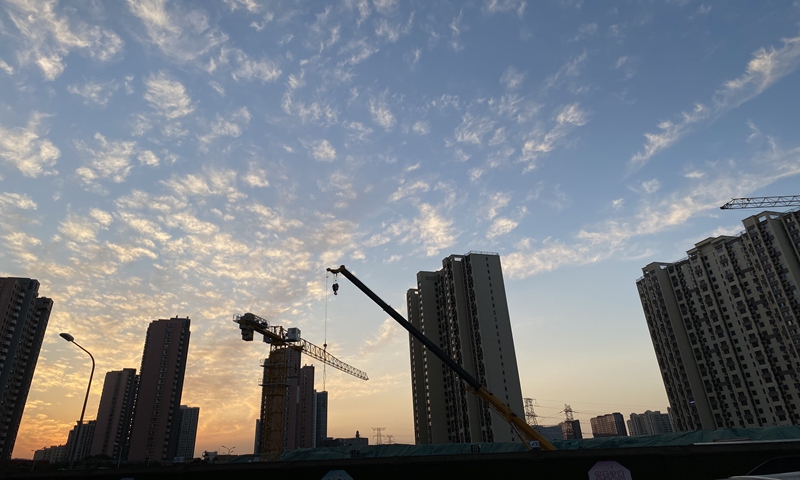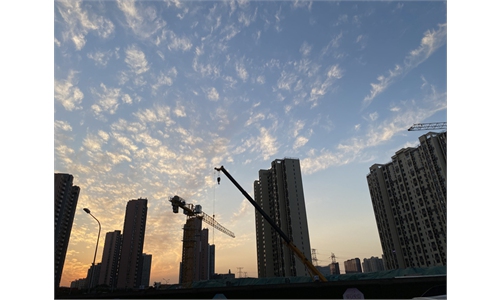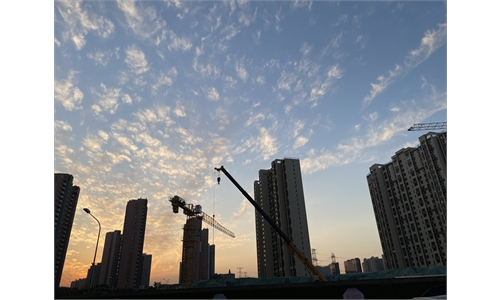Chinese cities cut mortgage rates to 4.4% amid policy fine-tuning
Cities cut mortgage rates to 4.4% amid policy fine-tuning

Cranes are seen at a construction site of a housing complex in Beijing. Photo: VCG
A total of 20 cities in China have moved to cut their mortgage rates to as low as 4.4 percent as of Thursday, the lowest level set by the central bank on Sunday, according to an industry report.First-, second- and even third-tier cities were among the 20, including Guangzhou and Shenzhen in South China's Guangdong Province, North China's Tianjin Municipality, Jinan in East China's Shandong Province and Fuyang in East China's Anhui Province, a report sent to the Global Times by Shanghai-based E-house China R&D Institute showed.
The lower rates will significantly reduce the monthly housing loans payback costs of home buyers. For example, on a 1 million yuan ($148,089) loan with 30 years of equal principal and interest repayments, the monthly payment will be reduced by 484 yuan in Guangzhou, according to the report.
As a practical and well-targeted policy, it will play an active role in reducing the cost of buying a home, activating new home sales, Yan Yuejin, research director of the institute, told the Global Times on Thursday.
Such policies will further promote the healthy development of the real estate market, and in turn the sector will play a positive role in supporting stable employment and stabilizing market entities, Yan said.
Local governments have announced subsidies for home buyers too, including Luzhou in Southwest China's Sichuan Province, which announced a 2-percent subsidy for some qualified home buyers, and Wuhu in Anhui Province, which offered up to 200,000 yuan in housing subsidies for talent.
Luzhou announced 15 new measures on Wednesday, including optimizing land transfer conditions, adjusting and implementing tax policies, meeting reasonable credit demand and adjusting provident fund loan policies.
In order to meet the residents' demand, Luzhou decided to offer a one-time subsidy equaling 2 percent of the house prices for certain buyers of first or second newly constructed commercial units. Qualified applicants include veterans, families with two or three children.
Many local governments have been rolling out preferential policies to attract talent, including Wuxi in Jiangsu, Southwest China's Chongqing Municipality, and E'zhou in Central China's Hubei Province.
Among 70 large- and medium-sized cities, 47 reported a month-on-month decrease in new house prices in April. Prices of commercial houses in first-tier cities saw a slight increase of 0.2 percent month-on-month. But prices in second- and third-tier cities fell in varying degrees, data from the National Bureau of Statistics showed on Wednesday.
In recent months, some foreign media outlets said that local governments' new real estate policies might herald "a big change" regarding the nation's policies in the sector.
On May 9, China's central bank said the real estate sector will not be used to provide short-term stimulus. Local governments are being supported to make tailored policies to meet inelastic demand and the need for upgrading, and to promote the healthy development of the sector, but the principle will not change as "houses are for living in, not for speculation."



